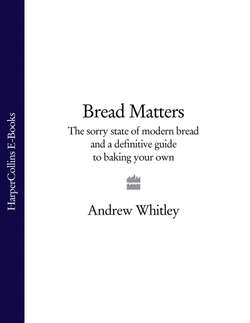Читать книгу Bread Matters: The sorry state of modern bread and a definitive guide to baking your own - Andrew Whitley - Страница 11
Enzymes and the great ‘processing aid’ scam
ОглавлениеEnzymes are modern baking’s big secret. A loophole classifies them as ‘processing aids’, which need not be declared on product labels. Additives, on the other hand, must be listed in the ingredients panel. Not surprisingly, most people have no idea that their bread contains added enzymes.
An enzyme is a protein that speeds up a metabolic reaction. Enzymes are extracted from plant, animal, fungal and bacterial sources. Chymosin, for example, is the enzyme used to curdle milk for cheese making. It is either derived from rennet from a calf’s stomach or synthesised by genetic engineering. As you can seen from the table above, a whole host of enzymes is used in baking. Their status as processing aids is based on the assumption that they are ‘used up’ in the production process and are therefore not really present in the final product. This is a deception that allows the food industry to manipulate what we eat without telling us. In their own trade literature, enzyme manufacturers extol the ‘thermo-stability’ of this or that product – in other words its ability to have a lasting effect on the baked bread.
Manufacturers have developed enzymes with two main objectives: to make dough hold more gas (making lighter bread) and to make bread stay softer for longer after baking. As the table shows, many bakery enzymes are derived from substances that are not part of a normal human diet. Even if such enzymes are chemically the same as some of those naturally found in flour or bread dough, they are added in larger amounts than would ever be encountered in ordinary bread.
And now the safety of bakery enzymes has been radically challenged by the discovery that the enzyme transglutaminase, used to make dough stretchier in croissants and some breads, may turn part of the wheat protein toxic to people with severe gluten intolerance4. This development is important because it suggests that adding enzymes to bread dough may have unintended and damaging consequences. Surely no one can seriously suggest that bakery enzymes should be omitted from bread labels.
I think we should be suspicious of bakery enzymes for four additional reasons:
Enzymes can be allergens and should be identified on labels in the same way as the major allergen groups.
Failure to label enzymes prevents people making informed ethical choices about what they eat.
There is a fundamental dishonesty in treating enzymes as though they had no effect on baked bread when this is patently why they are used.
Judgements about ingredients should take into account the whole food; an enzyme may be harmless in itself but may be used to make an undesirable product.
